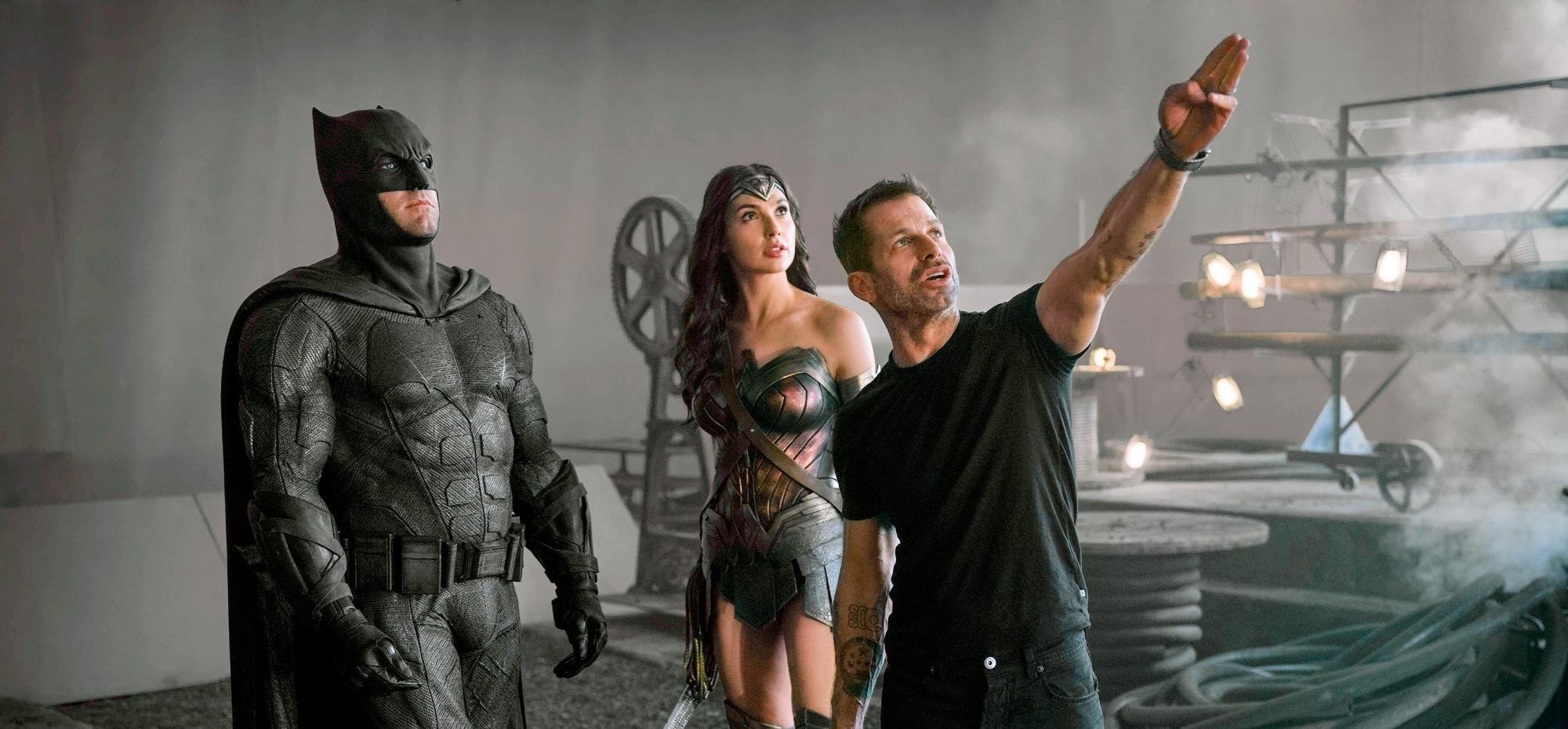
Learn from one of the most successful comic book screenwriters in Hollywood.
Whether you love his filmmaking style or hate it, there is no denying that Zack Snyder has a very specific visual language that stands out. Few filmmakers have inspired a divide as extreme as the comic book filmmaker whose entire style relies on making shots look as cool as possible.
Whether you think Snyder is a frivolous hack or pop art genius, his specific visual style shines through each project he is attached to much like other great writers and directors, such as Quentin Tarantino, Wes Anderson, and Taika Waititi. Establishing a distinct visual language is a product of being able to realize exactly want you want and write it into the screenplay for others to understand.
Let’s go through 10 screenwriting tips Snyder has dropped across different interviews he did for his four-hour-long Zack Snyder's Justice League. Check out this video from Outstanding Screenplays, then we'll break down each tip below.
10 Screenwriting Tips from Zack Snyder
1. Make heroes relatable by making them face the same struggles all people do but in different ways. Your goal is that your audience realizes that those heroes are versions of them.
Snyder finds that the most relatable characters are the ones that are slightly dysfunctional misfits. These characters speak to a universal struggle that everyone faces in their lives, which allows audiences to see themselves in the characters that Snyder creates in his films. Always look for the human way into the story through the humanity of your heroes.
2. Take time in your film to explain to the audience who your characters are so they connect with them and understand their choices better.
To care about a character in a story, the audience needs a snapshot of who the character is to understand them and the motivations behind their actions. You can do this through a single line of dialogue, a conversation between two characters, or a flashback. There are many ways to take the time to explain why a character is the way they are, so explore the different possibilities to deliver that information in a way that feels authentic to the story.
3. Movements go beyond just hopes and dreams with organization and selflessness. They can become influential by starting small and stepping it up day by day.
If the story you want to see in the world of cinema does not exist, then write that story. Nobody is going to be able to tell that story that you envisioned, so commit at least one hour a day to writing, until eventually, you have a full first draft. Once that first draft is finished, go through and make edits to hone in on your story and the major themes and the story beats that you want to hit.

4. Be honest with what kind of movie you want to create and try to keep your vision as uncompromised as you can.
Snyder had the unique opportunity to retell the story he wanted to tell with Justice League, but many of us only get one chance. Be honest with your story. Lean into the moments that you find the most truth in because the audience will recognize that and celebrate you for exploring an honest moment to its fullest potential.
5. Even if your characters aren’t plausible, take them seriously and make them do what feels natural for them first and then only think about the age rating for the film.
While certain characters couldn’t and wouldn’t exist in our shared reality, you’re goal as writing is to convince the audience to suspend their disbelief to take the character’s journey through the story seriously. Take the time to understand who your character is and what motivates them. A three-dimensional character is a lot easier to realize than forcing an audience to trust and understand a character who has goals without motivation.
6. When your story is huge and global, always make your themes intimate.
Giant, epic stories don’t have to feel disconnected. Instead, focus on the themes you are trying to convey to your audience, and find little ways to make the theme resonate with the character. Audience members, who have already developed a level of empathy for the character, will notice how the theme affects the character in the story.

7. To convey a feminist message without it being cheesy, make your female characters three-dimensional; she doesn’t have to be just one thing.
What makes a male character different from a female character? The answer is simple. Nothing. No matter what gender identity your character has, they have to be fully realized. Don’t rely on outdated gender tropes to write your characters.
8. If you’re dealing with a sci-fi character that’s not relatable to humans, rather than exploring their world, bring them into our world and let them interact with human problems, to understand the reality of the dilemmas they might face.
This can be a great exercise in looking at how humanity comes together. The problems that are a universal human experience can be explored even further by bringing an outsider from space into the conversation about what makes us human.
9. When making characters that people look up to, like superheroes, make a character that you want to be, not a passive character that you’re just observing.
The idea of spectacle is fine when we are asked to look at a character rather than examine what makes them great. Writing a character should be an intimate process. Don’t rely on the superficial tropes of what makes someone a hero. Instead, ask yourself why this person is a hero in the world you’ve created. If you write this reason clearly in your screenplay, then the reason will translate on screen for your audience.
10. In a franchise, it’s better to have a definitive end to your character’s stories, rather than having them go on and on forever.
Franchises and well-known IPs are the norm in the current industry. When we do find ourselves thrust into writing a screenplay for a franchise, we have to continue the stories naturally. It’s always great to consider what the end of each story looks like for the characters and find a way to naturally progress to that point where the story ends.
Let us know what you think of Snyder’s screenwriting tips in the comments!
Your Comment
1 Comment
You mean worst fucking filmmaker.
Man of Steel was shit, and things just went downhill from there.
January 3, 2023 at 4:21PM